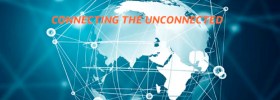By William Hoffman (@will_i_also_am), Associate Director and Head of Data-Driven Development at the World Economic Forum USA
13 May 2014: One thing is becoming increasingly clear in the era of big data: we are all somewhat in the dark. No one really knows how the digital world works. As author David Brin writes: “We’re in a fog of data ignorance.”
Some degree of uncertainty is inevitable. The data-driven world is just too complex and fast-changing for anyone to fully grasp. Answering the basic questions of “Who has your data?”, “Where is your data?” and “What’s being done with it?” have all become virtually impossible to definitively answer.
What matters now is how data is used. What diseases can be cured with personalised medicines tailored for a patient’s DNA? How can innovation be accelerated with 3D printing? What new aspects of global poverty can be better understood and acted upon? The discourse is shifting away from data to how the knowledge it generates can be applied.
To get to the heart of understanding how data is used, a richer understanding of the role of algorithms and their long-term impact on societies and economies is needed. Algorithms – mathematical procedures which turn raw data into findings that we can learn and act upon – play a vital role for establishing relevance, meaning and what data matters most in in the ever-expanding sea of big data. What stocks should you buy, sell or hold? Which people should you follow, friend or ignore? How can you find the shortest way home? Algorithms are central for providing us the insights and decisions that help orchestrate our day-to-day lives.
A recent report launched by the World Economic Forum, Rethinking Personal Data: A New Lens for Strengthening Trust, emphasizes the need for broader dialogue on the importance of understanding algorithms and how we can pry open our new “black boxes” to understand if the impact they deliver are fair and lawful. Make no mistake. Shining the spotlight on the influence of algorithms won’t be without its detractors. Algorithms maintain information differentials and reinforce power asymmetries in the digital economy. They are neither neutral nor static. They are highly complex, constantly changing and reflect the human intentions and values of the individuals and institutions who design and deploy them.
As noted at numerous World Economic Forum events, recent OECD meetings and a recent report from the White House (Big Data: Seizing Opportunities, Preserving Values), concerns are emerging on the transparency and access to socially impacting algorithms. Similar to discussions on the cultural impact of radio and television in the 1970’s and ‘80’s, the heart of these new conversations is focused on framing the responsibilities of new data-centered actors who can leverage data analytics to anticipate, persuade and manipulate individuals, societies and markets with unprecedented precision.
The nature of these complex and value-laden debates highlight some fundamental societal choices for global leaders. Questions on autonomy, the sovereignty of individuals, human rights, economic value distribution and discrimination are all a part of these conversations. There are no easy answers.
But smart questions are taking root. A growing community of industry leaders, academics and policy makers are focused on framing a productive conversation that gets to the heart of the underlying anxieties of our data-driven future. How significant and likely are the intended consequences of a given algorithm? Who holds the risk and responsibility if things go wrong? What data is being excluded? What are the risks of transparency? Would publishing an algorithm help those looking to game the system and establish an unfair advantage? Do individuals have the right to see (and reinvent) their own probable future? Who determines what is fair?
As the Internet of Things (IoT) begins to take root and the rise of predictive computing strengthens, understanding the power of algorithms will be essential for global governance. We need new capacities, tools and data ethicists. It’s not enough to promote and raise awareness on the amazing impact Big Data can have on solving our toughest global challenges. We need to enter this new era with eyes wide open and keep asking how data-driven outcomes occurred, who benefits and who is excluded.
Read the full World Economic Forum report: Rethinking Personal Data: A New Lens for Strengthening Trust here.
![[Guest Post] Privacy in the post-digital era: looking beyond the data](https://en.blogthinkbig.com/wp-content/uploads/sites/5/2014/05/shutterstock_145060585.jpg?resize=610%2C225)








